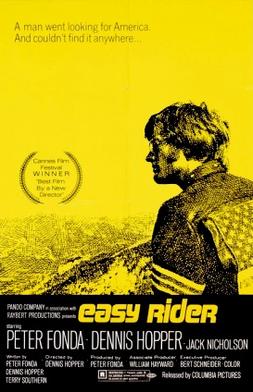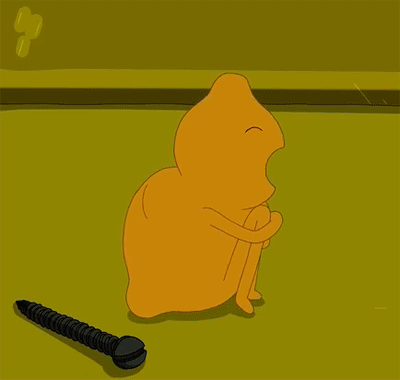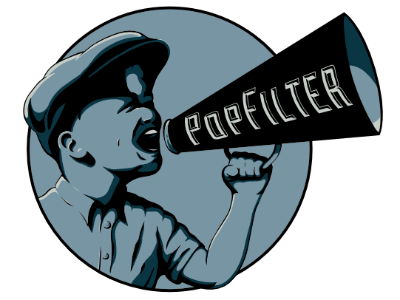Kerri Battles the AFI’s Top 100 — #84: Easy Rider

It wasn’t until sometime Saturday afternoon, as I was heading with friends to drink beer while riding inner tubes down the Delaware River, that I realized I had no idea what movie was on deck for this week. I pulled up the list on my phone and let out a groan as soon as my eyes rested on #84. “Oooooooh Easy Rider,” my friend said, with a tone that suggested it was right up my alley. A firm, “No!” was all I could say in reply. As someone who firmly believes she was born at least 30 years too late, Easy Rider should be one of my favorites. After all, it’s hailed as Hollywood’s touchstone to the counterculture of the late 60s. Unfortunately, my desire to turn on, tune in, and drop out is far outweighed by my need for a coherent fucking narrative. Peter Fonda and Dennis Hopper, however, don’t appear to have been overly concerned with such filmmaking conventions.

This gif makes about as much sense here as anything that happens in Easy Rider.
To spare you the pain of having to sit through this turd, here’s a summary. Peter Fonda and Dennis Hopper purchase a metric fuckton of coke from a Mexican guy. Then they immediately sell said coke to Phil Spector in a Rolls-Royce. Fonda rolls their many dollars into a rubber hose and hides it in the tear drop gas tank of his chopper. Then he and Hopper decide to head to New Orleans for Mardi Gras. They pick up a hitchhiker and drive him to his commune, where they skinny dip with some ladies and pick up some acid “to be taken at a special time with special people” before continuing on their way. Somewhere in Texas, they accidentally find themselves in the middle of a parade and try to march on their bikes as best they can. Still, they’re arrested for parading without a permit and thrown in the local jail. There, they meet Jack Nicholson’s character, a drunken ACLU lawyer who agrees to help them out. He gets Fonda and Hopper out on a minimal bail and joins them on their way to Mardi Gras for the sole purpose of visiting the Best Little Whorehouse in the South. The three stop for a bite at a diner in a small town and run afoul of the locals, including the sheriff, just by being them, man. Camping that night, they’re set upon by the locals and Nicholson is beaten to death. Fonda and Hopper leave (possibly burn?) his body and take his belongings. They head to the whore house in Nicholson’s honor and eat their special acid with some prostitutes in a Catholic cemetery while reciting the Nicene Creed. Then, on their way out of town, rednecks in a pick up shoot them both to death with shot gun and Fonda’s star-spangled chopper goes up in a burst of flames. The end.

Dafuq did I just watch?
It’s wildly apparent that Fonda and Hopper were on a plethora of drugs during the making of Easy Rider. For evidence, just re-read the above paragraph. That’s literally the entire movie. It’s not even in a nutshell. That’s just what happens. And all of that takes up maybe 30-40 minutes of the total runtime. The rest is just extensive filler scenes of Fonda and Hopper riding their bikes through the American Southwest or stoner hippies waxing existential around a campfire. Nothing of interest happens until Jack Nicholson shows up a little over halfway through, and he gets beaten to death 30 or so minutes later. The rest is just an obvious excuse for Hopper and Fonda to get high on the studio’s dime. By studio standards, it wasn’t a very large dime, so there wasn’t much of a downside for the execs, especially after the film became a box office sensation. I can only assume that this is because the entire movie-going public as a whole was also perpetually stoned in 1969. I think that’s the only way a person can find this film even remotely entertaining.

Maybe licking a hypnotoad would do it.
The AFI and critics will tell you this film deserves cultural recognition for at least a couple of reasons. The first would be the use of the soundtrack and on this point, I’d have to begrudgingly agree. As much as I loathe the film as a whole, a soundtrack full of Jimi Hendrix, The Band, The Byrds, and Bob Dylan does make it easier to get through. It makes the scenes where absolutely nothing happens much more watchable than the scenes where supposedly something is happening, but I just can’t figure out what that something is. Working against this stellar soundtrack, though, is the second reason those who should know better continue to praise the film: its editing. Fonda and Hopper, who pull double-duty as shit filmmakers and shit stars, employed jump cuts left and right in an attempt to create the disconnected and fractured feeling of being on drugs. This mistake technique is used liberally throughout the film, but most irritatingly as a transition between scenes. It’s done in a way that’s reminiscent of when VCRs were still a thing and you’d record programs off of TV. If you are the right age to remember this, then you’ll also remember when you’d try to record something on a tape that had been recorded over too many times; occasionally, what you tried to tape over would pop through in the middle of your new recording for a frame or two. This is something that every child of the 80s will remember as an annoyance at best. To Fonda and Hopper, though, it was art, man.

MAKE. IT. STOP.
Easy Rider is objectively terrible and, as someone who spent her formative years on a mission to consume and love everything “pop” about the 60s, I’m qualified to make that judgement. It makes no great, sweeping commentary about the state of America. It’s not the story of a couple of counterculture heroes as they try to make the world a better place. It’s just the story of a couple of drug smugglers who ride their choppers to NOLA and fuck up a bunch of people’s lives — including their own — along the way. Hell, these are guys who leave the dead body of their traveling companion to rot on the side of the road because they just have to make it to Mardi Gras, man, and take hallucinogenics with hookers. And that’s the least nonsensical piece of the “plot,” to boot. So, either the good folks over at the AFI are on copious amounts of mind-altering drugs or … Huh. I can’t think of any other logical explanation for giving this shit show valuable real estate on the list when all-time classics like Jurassic Park are conspicuously absent. — Kerri Smith
